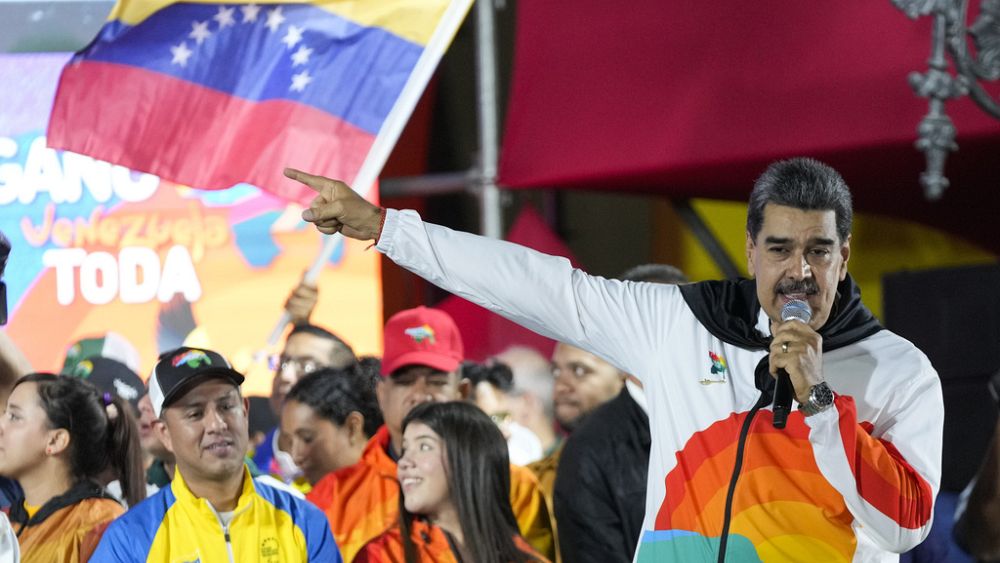An “anschluss” that doesn’t say its name? At the request of the Venezuelan regime, the voters decided: they voted on Sunday for the integration of the oil-rich region belonging to Guyana into their country.
Venezuelan voters were invited to vote in a consultative referendum organized by Caracas to legitimize its disputed claims.
The vote concluded with a yes victory, with more than 95% of votes in this sense to the five questions asked, indicated the National Electoral Council (CNE), which did not provide a participation figure.
Venezuelan President Nicolas Maduro congratulated himself on a victory “overwhelming”. “We have taken the first steps of a new historic stage in the fight for what belongs to us, to recover what the liberators left us”he estimated.
During the day, AFP journalists in Caracas, Ciudad Guayana, capital of the Venezuelan region bordering Essequibo, or in San Cristobal (southwest), noted only one moderate crowd in the polling stations.
The CNE indicated that the vote collected nearly 10.5 million votes. “votes”. Some 20.7 million Venezuelans were called to the polls.
This figure for the number of votes, without an official announcement of participation, generated controversy, the opposition accusing the government of trying to hide a high rate of abstention and emphasizing that 10.5 million “of votes” do not mean 10.5 million voters.
Henrique Capriles, twice opposition presidential candidate, relayed on “2,110,864” voters, each entitled to up to five votes, one “resounding failure” according to him.
“It is very difficult to understand such results”declared Luis Vicente León, director of the Datanalisis polling institute.
Contacted by AFP, the CNE did not immediately provide the number of voters.
The referendum, in five questions, asked Venezuelans in particular if they agree not to recognize the jurisdiction of the International Court of Justice (ICJ), seized by Guyana, and to integrate the territory into Venezuela.
However, this result will not have no concrete consequences in the short term: the territory is in Guyana and it is not a self-determination vote. The vote aroused iworries in Georgetownthe capital of Guyana, and on the international stage.
The opposition, which as a whole claims Essequiboshowed herself reserved, torn between her convictions and her desire not to support the government before the 2024 presidential election. The main opponent Maria Corina Machado described the referendum as a “distraction” in a context of crisis.
“Nothing to fear”
Caracas assured that he was not looking for a reason to invade the areaas Guyana fears in the long term, where thousands of people have formed human chains to show their attachment to the territory.
On Sunday, Guyanese President Irfaan Ali assured his compatriots that“There is nothing to fear in the hours, days and months to come.”
“Our first line of defense is diplomacy and we are in a very, very strong position.”he added, emphasizing that the country has broad international support and calling on Caracas to “maturity and responsibility”.
After Guyanese oil tenders and a new discovery of black gold in October, tension has risen in recent months.
An old claim
Venezuela has claimed this territory (sometimes called Guayana Esequiba) from 160,000 km2 representing more than two thirds of Guyana and where 125,000 people live, or a fifth of its population.
Caracas maintains that the Essequibo River should be the natural boundary, as in 1777 during the time of the Spanish Empire.
Guyana, which has some of the largest per capita oil reserves in the world, believes that the border dates from the English colonial era and that it was ratified in 1899 by a Court of Arbitration. The country has seized the ICJ, the highest judicial body of the UN, to have it validated.
Georgetown had also unsuccessfully appealed to the ICJ to try to stop the referendum.
Since COP28 in Dubai, Luiz Inacio Lula da Silva, the president of Brazil, a neighbor of the two countries, has “hope that common sense will prevail”.
“If there’s one thing the world doesn’t need, that South America doesn’t need, it’s unrest.”he emphasized before the results.
On the sidelines of the vote, figures of Venezuelan power broadcast a video showing Native Americans of the territory replacing a Guyanese flag with a Venezuelan one. Video qualified by “fake” and of “war propaganda” by Georgetown.



